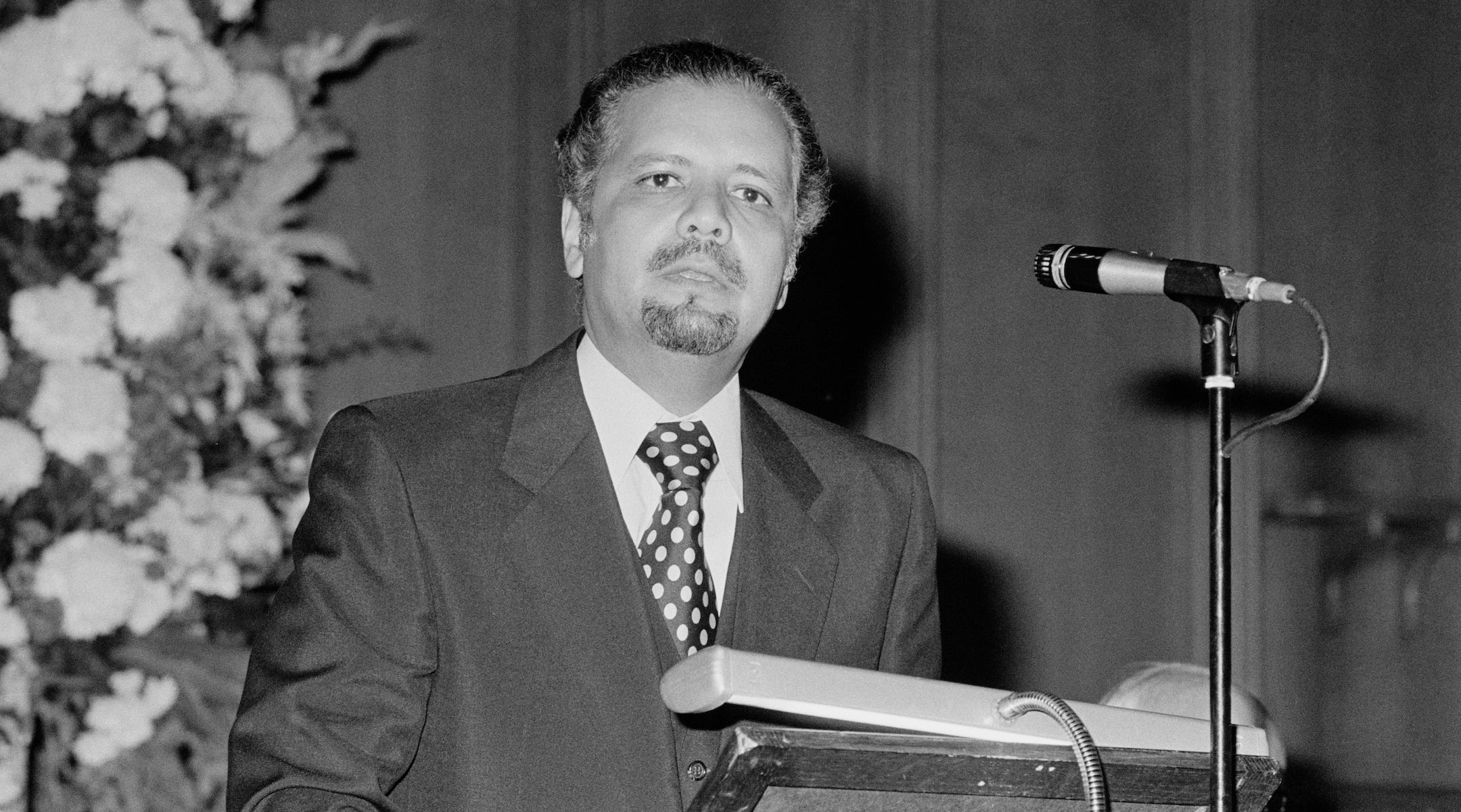Saudi Arabia will not recognize Israel even if it concludes a peace settlement with its neighbors and withdraws to the pre-June, 1967 borders, Sheikh Ahmed Yamani, the Saudian Minister of Petroleum said on the CBS “Face the Nation” television program today.
Yamani, replying to reporters’ questions, drew a distinction between Israel’s immediate neighbors and other Arab countries. He said that if Israel withdraws from all of the Arab territories, including East Jerusalem, under the terms of Resolution 242, “what matters is that the countries that surround Israel” recognize it and its borders. For those far away, it is not important, he said, adding. it is “not important or significant for all Arab countries to recognize and live in peace with them” (the Israelis).
The Saudian minister named Egypt, Jordan, Lebanon and Syria as Israel’s immediate neighbors which would be required to recognize it under a peace settlement. In reply to a question he acknowledged that only a few miles separate Saudian from Israeli soil but observed that the two countries had no common border. He insisted that Israel return East Jerusalem to Arab rule but was vague as to which Arabs should rule it. It there is a Palestinian state it should have Jerusalem, if not it should belong to Jordan, Yamani said when pressed by reporters.
He said that the Arab oil ministers meeting yesterday in Kuwait had decided to lift the oil embargo if Israel accepts withdrawal from all of the Arab territories and the United States guarantees Israel’s acceptance. He said that represented a concession from the earlier position of the oil ministers that Israel must actually withdraw before the embargo is eased. Yamani said that once there was a guaranteed acceptance by Israel of total withdrawal, his country would eventually produce oil at the rate of 20 million barrels a day which is higher than the levels of last Sept. But he said that in the future the oil producing countries–Arab and others–would determine the price of oil.
JTA has documented Jewish history in real-time for over a century. Keep our journalism strong by joining us in supporting independent, award-winning reporting.
The Archive of the Jewish Telegraphic Agency includes articles published from 1923 to 2008. Archive stories reflect the journalistic standards and practices of the time they were published.




